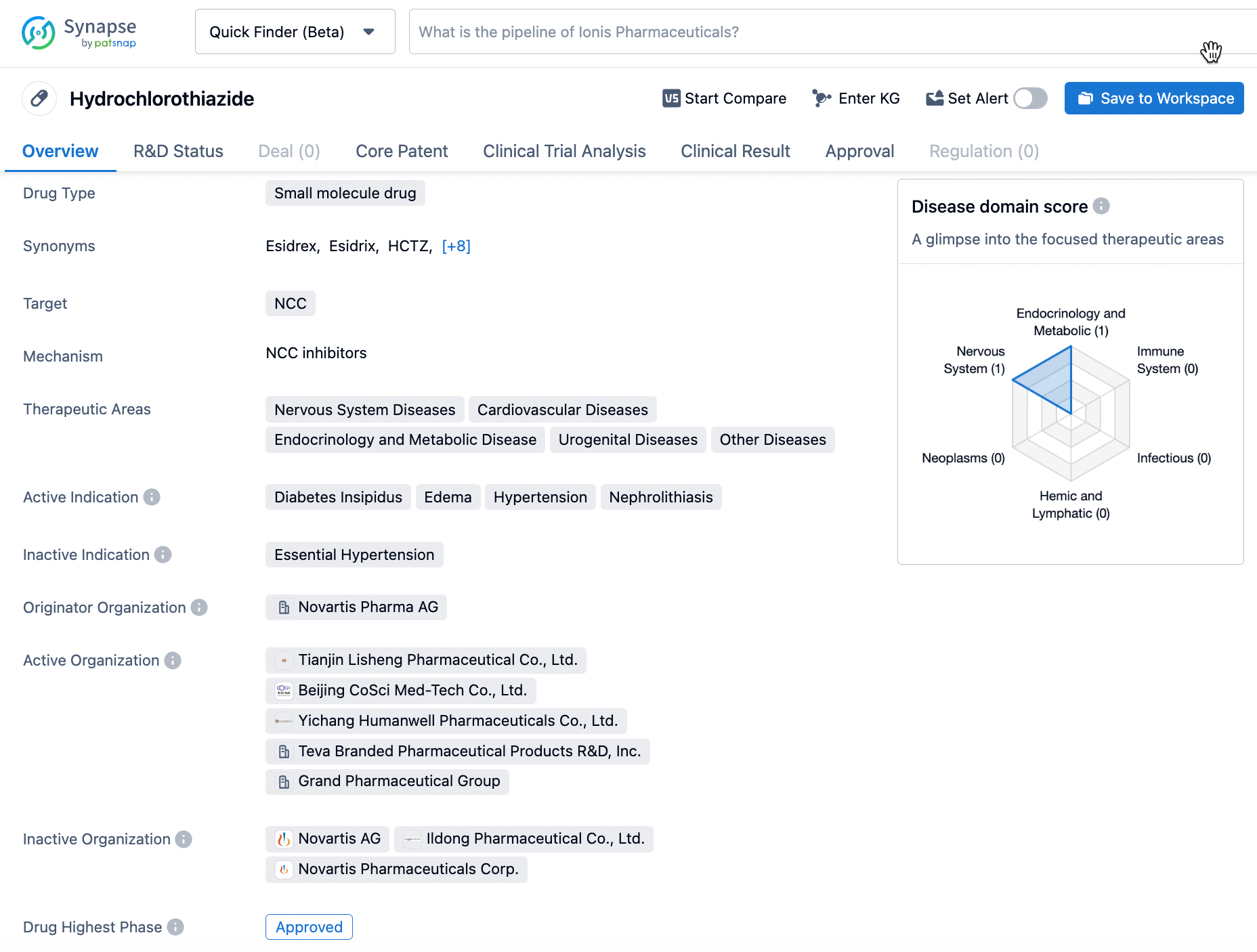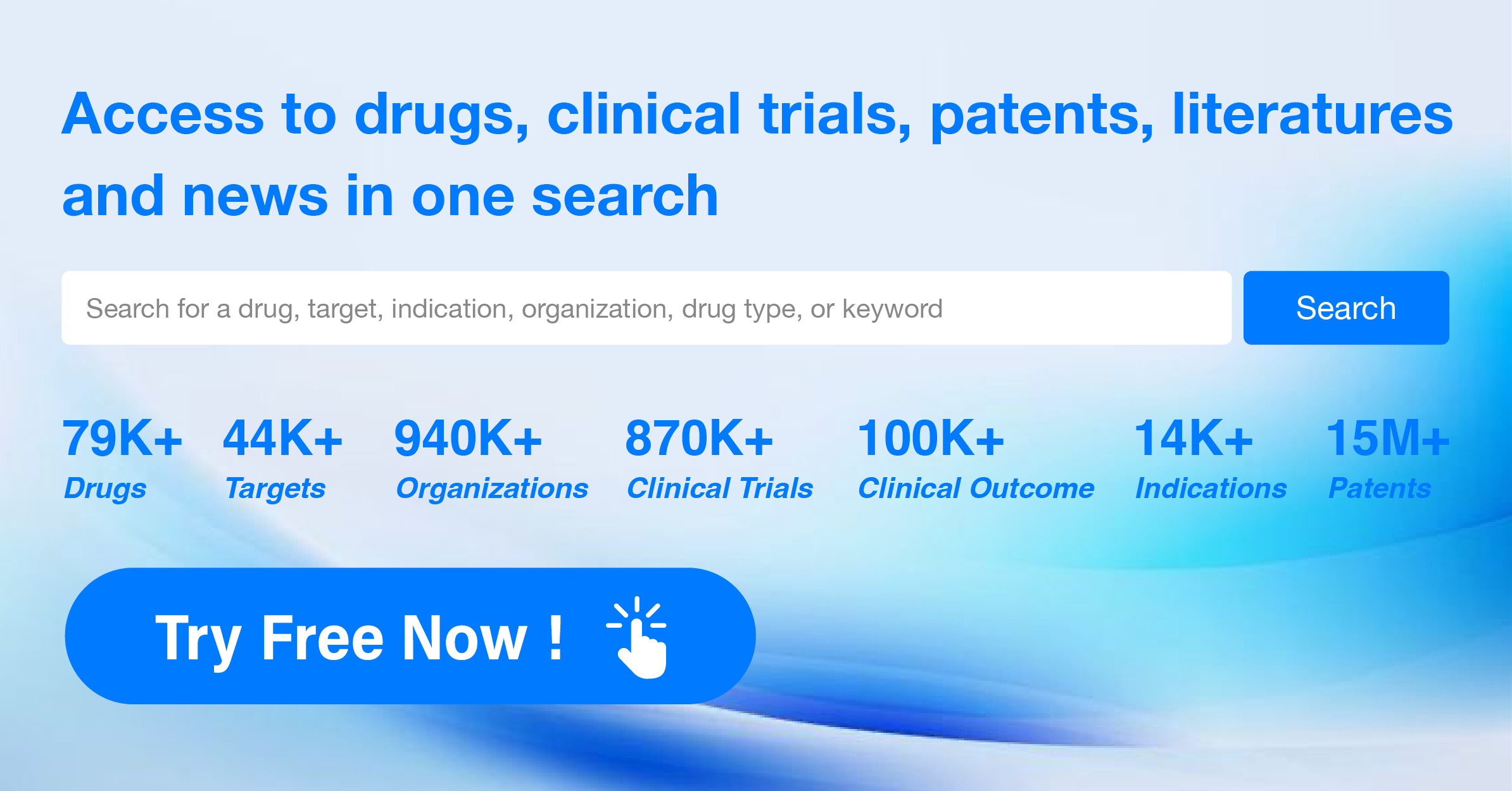Unlock the Power of Synapse: A Guide to Searching Hydrochlorothiazide
Hydrochlorothiazide, a small molecule drug, targets the NCC co-transporter as an inhibitor, exhibiting an assortment of therapeutic effects. The drug, first approved on February 12th, 1959, and originally developed by Novartis, is primarily used to treat edema, hypertension, and kidney calculi, and may be used to manage diabetes insipidus. Hydrochlorothiazide operates by obstructing the reabsorption of sodium and chloride ions in the distal convoluted tubule of the kidney, producing augmented excretion of water and electrolytes. This, in turn, reduces edema and lowers blood pressure. However, while the drug can be beneficial, it can also be associated with a range of side effects, including electrolyte imbalances and low blood pressure, and should be used with caution in patients with severe kidney disease. It is of utmost importance to only use Hydrochlorothiazide under the guidance of a healthcare provider, and patients should be carefully monitored for any adverse effects. In summary, Hydrochlorothiazide presents a diverse array of benefits for managing numerous conditions, yet the appropriateness of its use should be carefully tailored to each individual patient. Click on the image below to begin the exploration journey of Hydrochlorothiazide through the Synapse database!
You can search for the latest pharmaceutical information such as drugs, targets, patents, transactions, clinical results, etc. through the Synapse database. Come and experience it!





